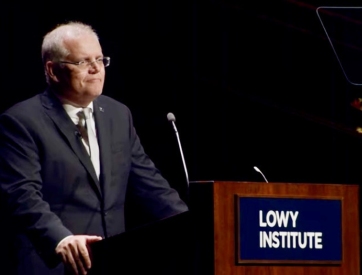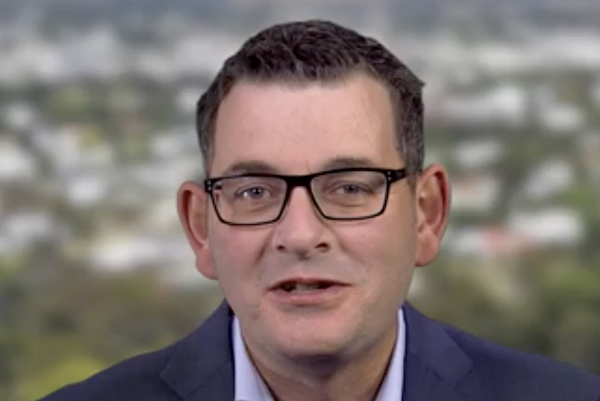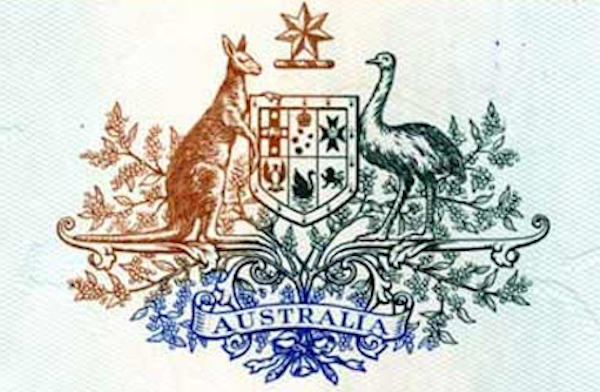Although the Liberals were victorious in May, their political fortunes are not as strong as they may seem, writes Tarric Brooker.
AS THE weeks and months have passed since May’s Federal Election, little has seemingly changed within the Federal Labor party. The shellshock of unexpected defeat remains as the Albanese-led Opposition continues to struggle to find its footing.
With almost three years until the next federal election, some measure of despondency is to be expected, but ultimately a lost election is not the end of the world. As Labor continues to lick its wounds and wishes for better days ahead, no one has bothered to point out that the Morrison Government only has a two-seat majority.
So for just one moment imagine you’re a dispassionate observer of Australian federal politics and this is the situation before you:
- Economic growth is at its lowest level since the financial crisis;
- Real (inflation-adjusted) household incomes haven’t materially risen in a decade;
- Commodity prices have dropped to the point where they are now potentially a net drain on the Federal budget from this point forward;
- The Morrison Government’s Ministry is arguably weaker than any other Coalition ministry before it;
- Barnaby Joyce wants his old job back as leader of the Nationals; and
- Peter Dutton still likely harbours leadership ambitions.
Does that sound like such a bad position for an opposition party to be in?
While there is little doubt Labor would much rather be in government, despite the difficult challenges a slowing domestic and global economy would present during their term. The fact remains that the Morrison Government is in a vulnerable political position and will be for the foreseeable future.
During the recent Federal Election campaign, the Morrison Government was extremely light on policy, instead choosing to place their focus on tax cuts, a narrative of strong economic management and a return to surplus.
By offering such a limited and narrow agenda, the Coalition ensured that the electorate would have few expectations of the Morrison Government, which worked in their favour during the election campaign.
However, with the economy showing the lowest growth since the financial crisis and storm clouds of a potential global recession brewing on the horizon, Prime Minister Scott Morrison has picked the absolute worse time to bet the Coalition’s political future on somehow avoiding an economic downturn.
Despite the media coverage suggesting that Scott Morrison is the second coming of John Howard and that his ascension marks the beginning of a golden era for the Liberal Party, the reality is declining living standards and slower economic growth has left the Government exposed to a wide array of political wedge tactics.
The strategy that perhaps offers the best chance of wedging Morrison against his fellow MP’s and the Coalition’s donor base is the issue of immigration. Despite promises during the election campaign that the Morrison Government would cap immigration at 160,000 per year, in reality the 2019-20 budget outlines a net overseas migration intake of over 260,000.
At a time when the Liberal Party’s NSW State colleagues are calling for immigration to be curtailed, to reduce congestion and ensure access to essential services such as education and healthcare, calling for immigration to be cut offers Labor a unique angle of attack, that could place Morrison’s leadership under pressure.
While things may appear bleak in the shadows of a Morrison Government still basking in its honeymoon period, it’s important to remember that behind the Coalition’s veneer of unity there are unfulfilled leadership aspirations and ideological struggles that are far from settled.
With the economy projected to continue to deteriorate and RBA Governor Philip Lowe increasingly calling on the Government to provide support, the Coalition is increasingly trapped between its promised surplus and the mythos of superior Liberal economic management.
Ultimately, Morrison's Government is in a far weaker position than it may first appear.
There is only a slim two-seat majority separating them from another stint in minority government and their political fortunes are now directly linked to the status of the economy.
From Labor’s perspective, perhaps it’s not such a bad thing Bill Shorten lost the Election after all, as the Coalition is finally forced to prove that its narrative of “superior economic management” is accurate.
Tarric Brooker is a freelance journalist and political commentator. You can follow him on Twitter @AvidCommentator.
 This work is licensed under a Creative Commons Attribution-NonCommercial-NoDerivs 3.0 Australia License
This work is licensed under a Creative Commons Attribution-NonCommercial-NoDerivs 3.0 Australia License
Support independent journalism Subscribe to IA.











